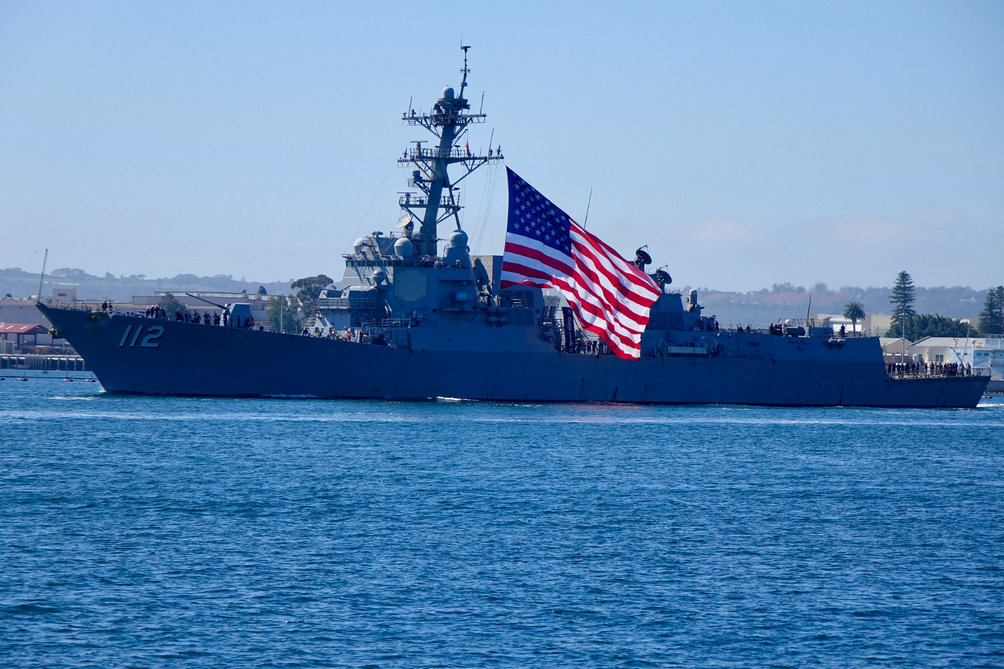An American “blow” to the ” Blue Homeland ” narrative seems to be taking shape with the bill submitted to the US Congress and provides for the expansion of Greek-American cooperation in maritime security in the Eastern Mediterranean region , together with Cyprus and Israel .
The bill is titled “American-Hellenic-Israeli Eastern Mediterranean Counterterrorism and Maritime Security Partnership Act of 2025.” The development is seen in Athens as “positive,” effectively handing over the seas of Greek interest to US supervision .
The bill builds on the Eastern Mediterranean Security and Energy Cooperation Act of 2019 (the EastMed Act) and the U.S.-Greece Defense and Interparliamentary Cooperation Act of 2021. It provides for a deepening of strategic security cooperation. If it ultimately becomes law, it would strengthen the American presence in the region, signaling Washington’s intention to remain in the Middle East for a long time.
The bill demonstrates that the planners of the American strategy in the Eastern Mediterranean are now proceeding on the basis of the doctrine that the Greece-Cyprus-Israel “line” constitutes the West’s last line of defense towards the East, bypassing NATO plans that include Turkey in the Western Security System.
The bill is an initiative of the American Hellenic Institute (AHI). In a related announcement, the AHI states that it has long supported the functional and consolidated “3+1 partnership” between Greece, the Republic of Cyprus, the State of Israel and the United States.
According to the AHI, the “3+1” scheme is already considered a strong regional cooperation, which, among other things, protects America’s interests, ensures international trade, but also promotes a framework of peace, stability and security in a region of great geopolitical importance. The US is partially withdrawing from the land military presence in the Middle East, strengthening a stable “geopolitical defense arc” of Israel – Cyprus – Greece. By promoting the new bill, the US seeks to upgrade the “3+1 partnership”. The scheme “steps up the ladder” and moves to the next level, connecting the energy sector with the sector of defense cooperation and military training.
The American approach does not come by chance. According to estimates from government circles, the new bill strengthens, expands and consolidates the “3+1” relationship. It is a provision for Washington’s growing energy strategic involvement in the region. The upcoming strategic investments of American giants in maritime areas in the Eastern Mediterranean must be protected institutionally and militarily, and produce economic and geopolitical profit.
The interest of the American company Chevron in hydrocarbon exploration in two offshore blocks south of Crete, “South Crete I” and “South Crete II”, was finalized last week with its acceptance by the Ministry of Environment and Energy. Including the latest new concessions, the total area allocated for exploitation to the companies amounts to 47,000 square kilometers. This area must first of all be considered geopolitically secure before any development action. It is also operationally safer, as a larger area enhances and multiplies the chances of identifying commercially exploitable deposits, reducing business risk.
It is understood that the bill is based on institutional foundations and work that has preceded it. It essentially provides for the strengthening of the “security base” of the American presence in the region. The Americans want to know that the “security umbrella” must operate within their own military training standards, which is why it provides for the creation of joint training centers in Crete and Cyprus. In Crete, the “TRIREME” center and the “CERBERUS” center in Cyprus with the CYCLOPS headquarters (the word sounds similar to “CYCLOPS”) meet the above need.
The CYCLOPS Center (“Cyprus Center for Land, Open-seas and Port Security”) is a training center owned by the Republic of Cyprus, based in Larnaca. It was completed in cooperation with the US government, based on the “Memorandum of Understanding” signed (12/9/2020) between the two countries. The bill also provides for the complete lifting of the US arms embargo on Cyprus. The lifting of any legal restrictions on the delivery of US defense equipment to Cyprus is in itself a factor in deterring any future malicious intervention by Turkey on the island. The measure replaces a previous regime, under which this release required annual ratification, which had angered the Turkish Foreign Ministry.
The… instruments have begun in Turkey
At the same time, the narrative of the “Blue Homeland” may have entered Turkey ‘s school textbooks , but in practice it seems to be weakening with the strengthening of the American and French presence in the region. Already the lobby of the Turkish admirals, the inspirers of the narrative and other “dogmas”, such as the corresponding “Blue Homeland of the Ethers”, the “Century of Turkey”, etc. (!), is criticizing the “abandonment” by the government.
According to reports in the Turkish press, one of the initiators of the “Blue Homeland”, Vice Admiral (retd) Cem Gurdeniz, noted in an interview that any removal of a Turkish ship from the Eastern Mediterranean is a renunciation of the strategy that once constituted the forefront of Turkish foreign policy. It remains to be seen how the government of appeasement in Kasos and submission in the Aegean will utilize the new data.
Nik. Stavroulakis – Helleniscope.com
Εστάλη στην ΟΔΥΣΣΕΙΑ, 14/4/2025 #ODUSSEIA #ODYSSEIA, Costas Vagelatos

